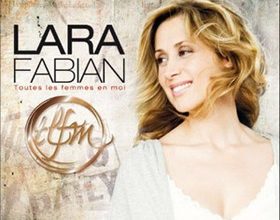Обновлено на
1 июля 2019

Вопрос про Английский (американский вариант)

When you «disagree» with an answer
- Английский (американский вариант)
- Испанский (мексиканский вариант)
- Clean is when something is free from being dirty, or isn’t dirty. Clear can be used for mental or physical situations but it still holds the same meaning. It means when there is free space and everything doesn’t feel cramped but instead feels more free. Tidy is when everything is organized. Tidy up just means to start organizing things. For example a teacher could tell his/her students “Tidy up all your books” which means start organizing your books. Lastly wash is take away dirt and/or all dirtiness from something or someone.
- The cleaned box are stack up untidily. The dirty and dusty box are stack up tidily.
- «Tidy» means not messy or in order while «clean» means not dirty. You clean the dishes. I tidy my room
- Перевод по словам
Clean is when something is free from being dirty, or isn’t dirty. Clear can be used for mental or physical situations but it still holds the same meaning. It means when there is free space and everything doesn’t feel cramped but instead feels more free. Tidy is when everything is organized. Tidy up just means to start organizing things. For example a teacher could tell his/her students “Tidy up all your books” which means start organizing your books. Lastly wash is take away dirt and/or all dirtiness from something or someone.
Previous question/ Next question
Символ показывает уровень знания интересующего вас языка и вашу подготовку. Выбирая ваш уровень знания языка, вы говорите пользователям как им нужно писать, чтобы вы могли их понять.
- Мне трудно понимать даже короткие ответы на данном языке.
- Могу задавать простые вопросы и понимаю простые ответы.
- Могу формулировать все виды общих вопросов. Понимаю ответы средней длины и сложности.
- Понимаю ответы любой длины и сложности.
Что такое «подарки»?
Show your appreciation in a way that likes and stamps can’t.
By sending a gift to someone, they will be more likely to answer your questions again!

If you post a question after sending a gift to someone, your question will be displayed in a special section on that person’s feed.

Приложение вопросов и ответов, в котором носители языка отвечают на ваши вопросы!
Обновлено на
19 сент. 2019
- Английский (американский вариант)
- Традиционный китайский (Тайвань)
The cleaned box are stack up untidily. The dirty and dusty box are stack up tidily.
they are often used together.
«clean your room and tidy up.»
«Tidy» means not messy or in order while «clean» means not dirty. You clean the dishes. I tidy my room
С помощью этого приложения вы можете легко задавать носителям языка столько вопросов, сколько захотите!
Hi,
We can say “paint something green”,but can we move the grammar rule to another sentence and say“clean the room tidy(meaning:clean the room and make it tidy)”?
Thank you in advance
No, that doesn’t work. Cleaning and tidying are different things – cleaning does not make things tidy – it makes them clean.
Then what about “clean it clean”?
That would be tautological (totally unnecessary).
I’ve just had a thought: you could maybe say ‘clean it spotless’, but it’s not very colloquial.
can we move the grammar rule to another sentence and say“clean the room tidy”?
It is an interesting question.
First, I must emphasise, that there are no rules — please see my signature.
I wiped the table clean.
I wiped the table dirty.
She shouted hoarse.
She shouted herself hoarse.
1. differs from She arrived at the meeting drunkly and 2. differs from I shot him fatally.
No, we can’t.
I clean the room ____, can only take an adverb.
Перевод по словам
adjective: чистый, опрятный, незапятнанный, ровный, беловой, чистовой, гладкий, без пороков, непорочный, искусный
verb: чистить, очищать, прочистить, вычистить, протирать, очищаться, промывать, полировать, сглаживать
adverb: начисто, полностью, прямо, набело, совершенно, как раз
noun: чистка, уборка
conjunction: и, а, но
adjective: опрятный, аккуратный, чистый, неплохой, значительный, довольно хороший
verb: убирать, прибирать, приводить в порядок
noun: приборка, уборка, салфеточка, детский передник





